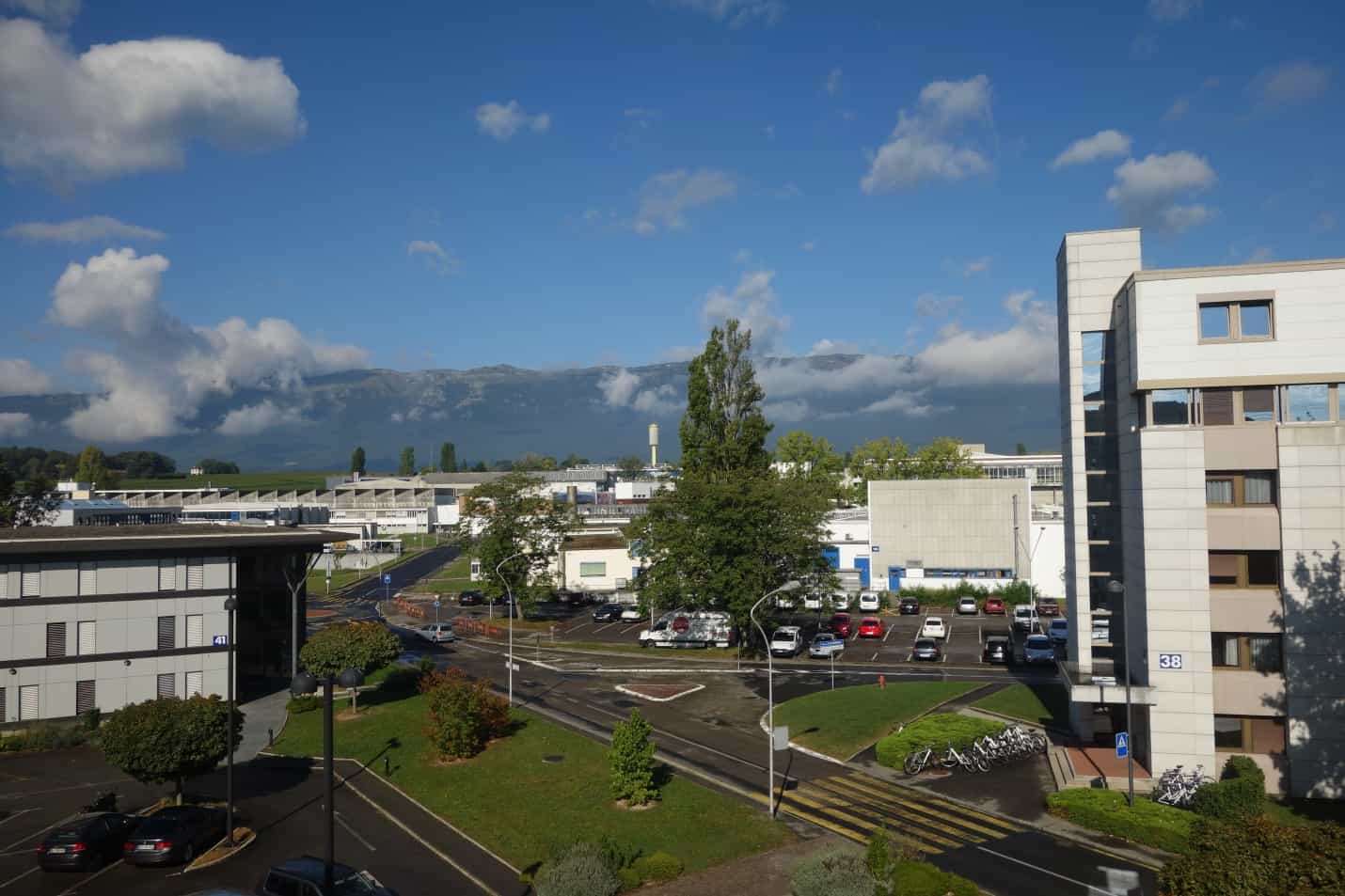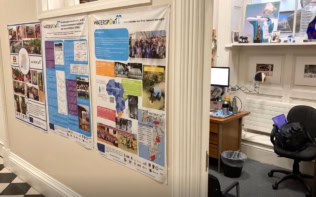
By Robert P Crease in CERN, Geneva
On Sunday morning I arrived at CERN to find workers putting finishing touches on a huge tent where the lab will host its TEDx event on Wednesday, and its 60th anniversary festivities next week.
“TED”, which stands for Technology, Entertainment, Design, is a non-profit organization that promotes talks on what it calls “ideas worth spreading”; the “x” denotes an independent event organized in that spirit. This is the second TEDxCERN – the first took place last year – and it’s hosted by Brian Cox. More than 1000 people will watch 14 speakers, three performances and three animations; tens of thousands more viewers are expected online.
James Gillies, CERN’s head of communication, invited me to be a speaker. The subject this year, he said, was how science could better engage with major social challenges. He said that my May Physics World column “Why don’t they listen?” – on why scientists have difficulty getting politicians’ ears – had “hit the nail on the head”, and asked if I’d be interested in discussing the idea.
A week at CERN? A great excuse to implore colleagues take over my classes? Sure! All I had to do, I thought, was talk my way through some extended version of the column.
Then I clicked on some links that Gillies had sent me to last year’s talks. Uh-oh. They showed polished speakers speaking flawlessly. Not a single “um” or “ah”. Nobody nervously thrusting hands into pockets or awkwardly stroking chins. Each speaker addressed the audience from a bare stage, was calm and relaxed, and had no props or PowerPoint.
My style is more disorganized and frenetic. When I teach, I’m surrounded by protective piles of notes and stacks of books. When I lose track of a train of thought, as often happens, I typically recover by saying, “Whoops! Takeover!” or “Wait! I can find that reference!”
I was a looming TED train-wreck.
Fortunately, TEDxCERN provides its speakers with professional coaching lessons. Michael Weitz, who spent 10 years in New York as a theatre director and producer, and who now works in the corporate world from his base in Tel Aviv, coached me via Skype. Weitz helped me frame my stories better and gave acting tips. He made me more aware of how I use hand gestures, describing them as a speaker’s “analogue version of PowerPoint”. It’s hard, he said, to transition between what theatre people call “on-” and “off-book” – from reading a text to speaking without one.
My first “off-book” attempts, he said, sounded like I was “reading off the teleprompter in my head” – but he managed to make me laugh rather than crumple. I wish I’d had this coaching 35 years ago, when I began teaching; students would have gotten a lot more out of my courses. After a few reshapings of my initial draft, I came up with one a little over 18 minutes long. Too long, Michael said – 14 minutes max!
Alex Brown, the TEDxCERN stage manager, took me to see the inside of the tent. Alex, who works in the lab’s photo archive, described his role as “pushing people on and off the stage”. The tent was empty except for workers adjusting a red spot in the middle of the platform where the speakers would have to stand and deliver. With much struggle I had managed to pare my talk to 16 minutes. I asked Brown – as I had asked everyone else I’d encountered so far – to reassure me that 16 minutes was okay. He, like the others, told me that the answer was “No.”
I’ve got 48 hours to lose two minutes, and it won’t be easy. It could still be a train wreck.



